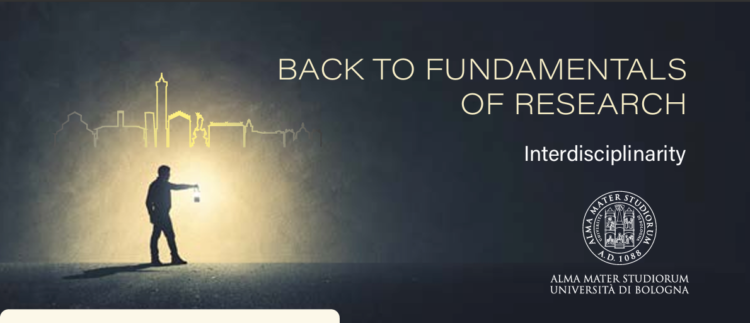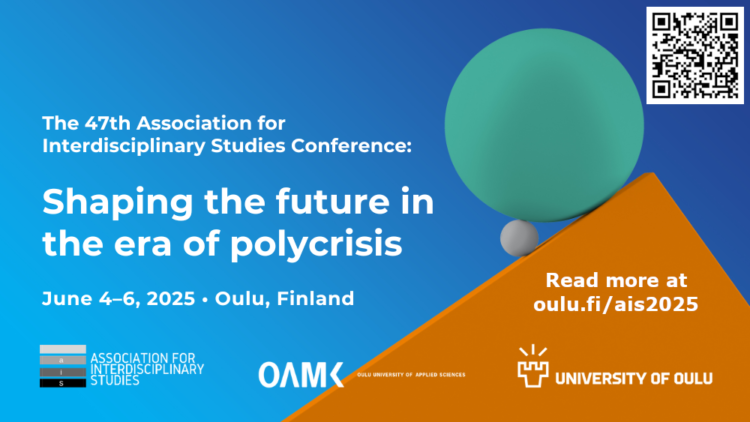SHAPE-ID member Prof Catherine Lyall was a keynote speaker at the University of Bologna's international…
Infrastructures for Interdisciplinary Engagement: Lessons from the Digital Humanities
Thursday 18th February 13.00 – 14.15 CEST | 12.00 – 13.15 GMT
Register: click here
The aim of this webinar was to learn from digital research infrastructures about how they foster inter- and transdisciplinary research between humanities scholars on the one hand and computer scientists and developers on the other. We believe that lessons learned from the Digital Humanities (DH) could be applied to other instances of inter- and transdisciplinary cooperation and wanted to learn which measures work best in encouraging such cooperation on the basis of successful case studies and to explore user involvement strategies aimed at disseminating already existing tools, services and methodologies among DH-curious but still largely “non-digital” scholars.
Invited panellists Dr Darja Fišer (University of Ljubljana), Eliza Papaki (DARIAH-EU & Trinity College Dublin) and Arnaud Gingold (OPERAS) presented perspectives on these issues from work on various European research infrastructure projects, followed by an interactive Q&A with the audience chaired by Dr Maciej Maryl, Director of the Digital Humanities Centre at the Institute of Literary Research, Polish Academy of Science, and a partner on the SHAPE-ID project.
You can listen to the webinar audio recording here or view the video recording on our Facebook page.
Panellists

Dr Darja Fišer | University of Ljubljana
CLARIN ERIC’s instruments and initiatives to encourage interdisciplinary collaboration
CLARIN ERIC is a research infrastructure that provides easy and sustainable access for scholars in the humanities and social sciences and beyond to digital language data in written, spoken, video or multimodal form and advanced tools to discover, explore, annotate and analyse them wherever they are located. Given that the role of language is highly multifaceted, so is the scope of research disciplines that study it. As a carrier of cultural content, record of the past and key component of national and cultural identities it is relevant for history, cultural heritage and social science scholars. As the main communication instrument in societies and means of human expression, it is scrutinised by anthropologists, literary scholars and psychologists. As a carrier of information, it captivates the attention of researchers in media, journalism and communication studies. In her talk, Darja will present CLARIN’s instruments and initiatives such as the TwinTalks workshop series, the ParlaMint project and Interview Data tutorials that were conceived to encourage and support interdisciplinary collaboration.
Darja Fišer is Associate Professor at the University of Ljubljana and Senior Research Fellow at the Institute of Contemporary History and Department of Knowledge Technologies at the Jožef Stefan Institute. She is former Vice-Executive Director of CLARIN ERIC in charge of User Involvement and has just been appointed as National Coordinator of DARIAH-SI. As a researcher and lecturer, she is heavily involved in integrating corpus-linguistics methods and natural language processing with SSH disciplines that work with language material.
 Eliza Papaki | Trinity College Dublin
Eliza Papaki | Trinity College Dublin
The model of infrastructures as truly interdisciplinary spaces: the example of DARIAH-EU
Infrastructures and Digital Humanities could be very rightly considered truly interdisciplinary spaces. Through a number of instruments and approaches, interdisciplinarity is encouraged, nurtured and ultimately fostered, being a key strength of infrastructures, respecting the reality of their user communities. In her talk, Eliza will use the example of DARIAH-EU, the European Digital Research Infrastructure for Arts and Humanities, to shed light on ways that have supported the growth of interdisciplinarity through various bottom up approaches and structures within DARIAH.
Eliza Papaki is Outreach and Communications Officer for DARIAH-EU (Digital Research Infrastructure for the Arts and Humanities) at the Trinity Long Room Hub. She completed studies in History and Archaeology and holds an MPhil in Public History and Cultural Heritage from Trinity College Dublin. Before joining the Trinity Long Room Hub, Eliza worked on digital humanities projects at the Centre for Digital Humanities, Maynooth University and the Digital Curation Unit, Research Centre ATHENA in Athens, Greece. Examples of these projects are Europeana Cloud, #dariahTeach, NeDiMAH and Europeana Research. Her role in these projects was mainly in the area of User Requirements, dealing with finding, collecting and understanding digital research practices of different humanities disciplines but also in Scholarly Communications and Outreach.

Arnaud Gingold | OPERAS
FAIRification in the Social Sciences and Humanities: between advocacy and engagement
The presentation will briefly describe the activities of CO-OPERAS, a GOFAIR Implementation Network dedicated to the FAIRification of data and publications in the Social Sciences and Humanities (SSH). CO-OPERAS conducted various workshops across Europe with researchers, data managers, and information experts operating in the field of SSH. These workshops gave the opportunity to describe a high variety of acquaintance with the FAIR principles, in terms of skills, practices, and expectations. A use case of FAIRifcation in the history field will allow us to give hints about the technical, epistemological, and organisational components of a FAIR success story.
Arnaud Gingold is a member of the OPERAS Research Infrastructure coordination team: he is the FAIR data officer of OPERAS and the project manager of CO-OPERAS, a GOFAIR Implementation Network. With a dual background in linguistics and digital resources management, he joined OPERAS in 2016 as a Technical Coordinator for the HIRMEOS project and is based at OpenEdition in Marseille, France.



